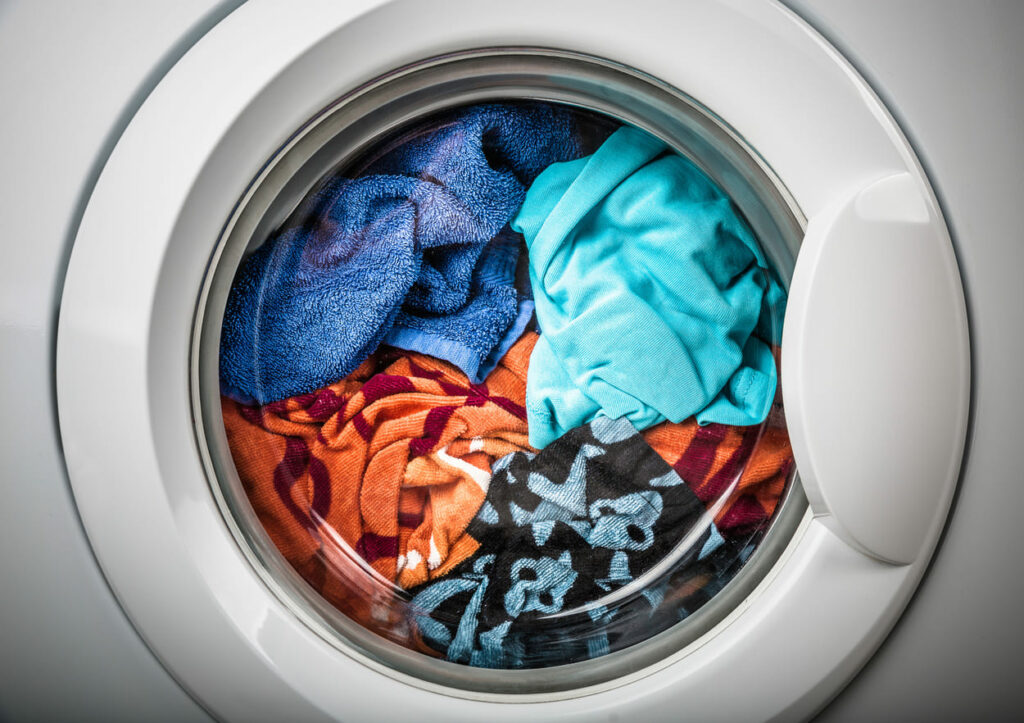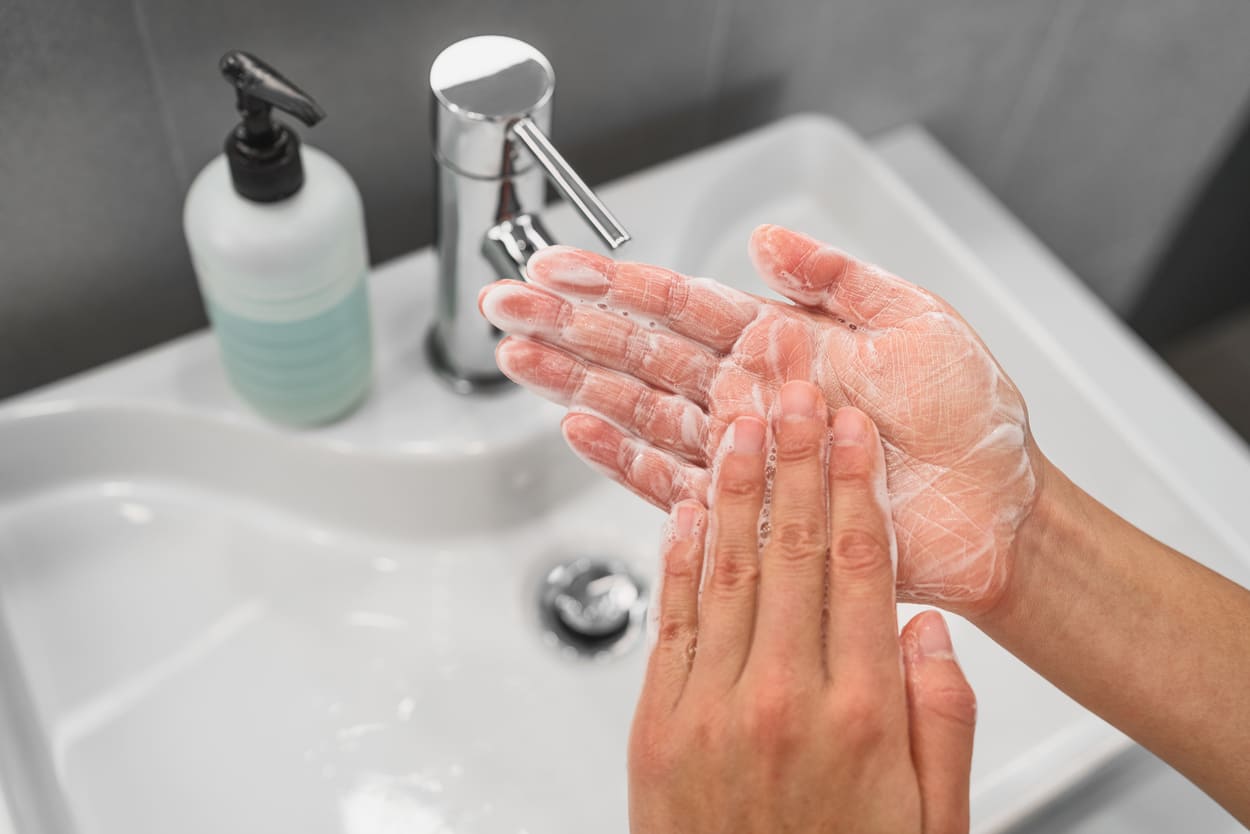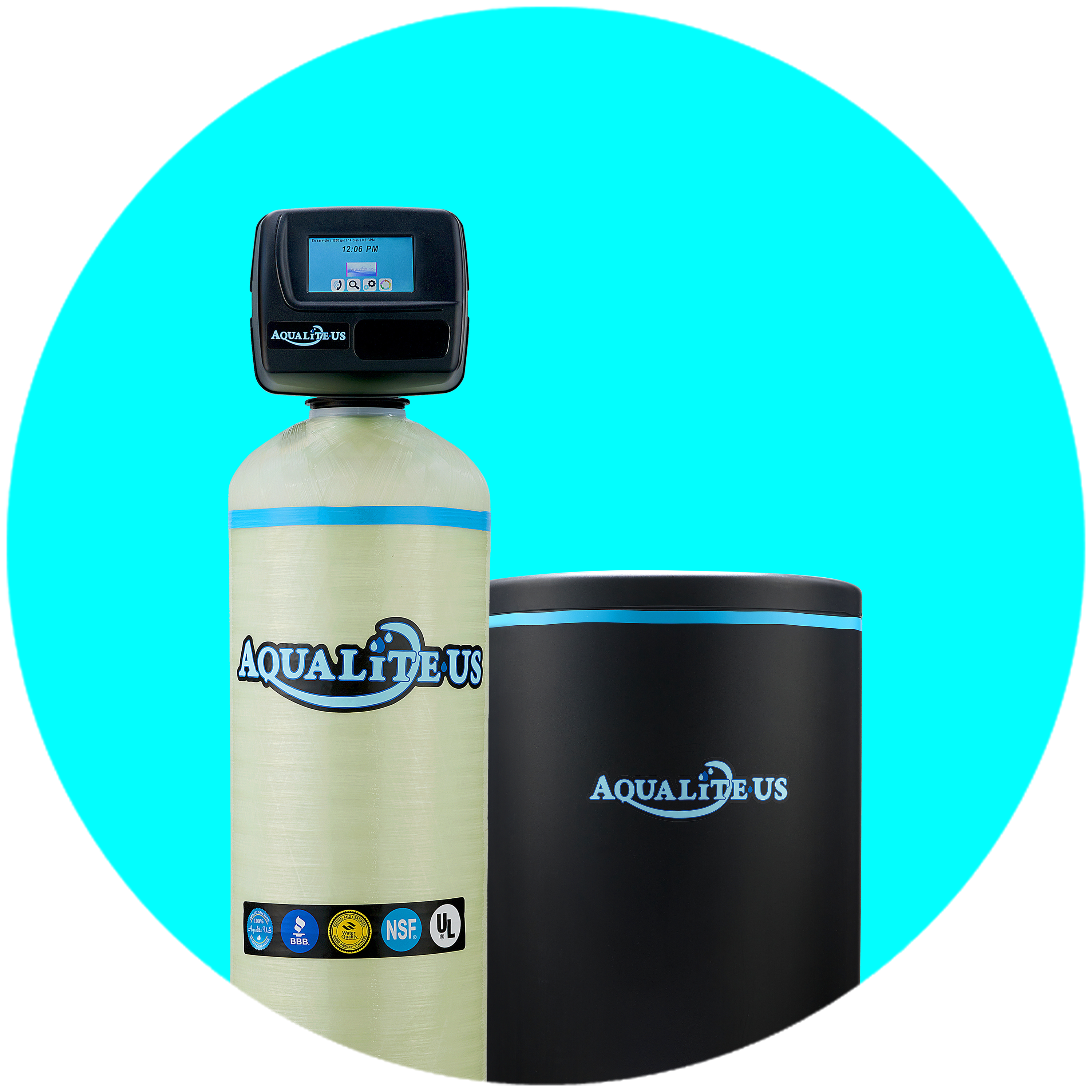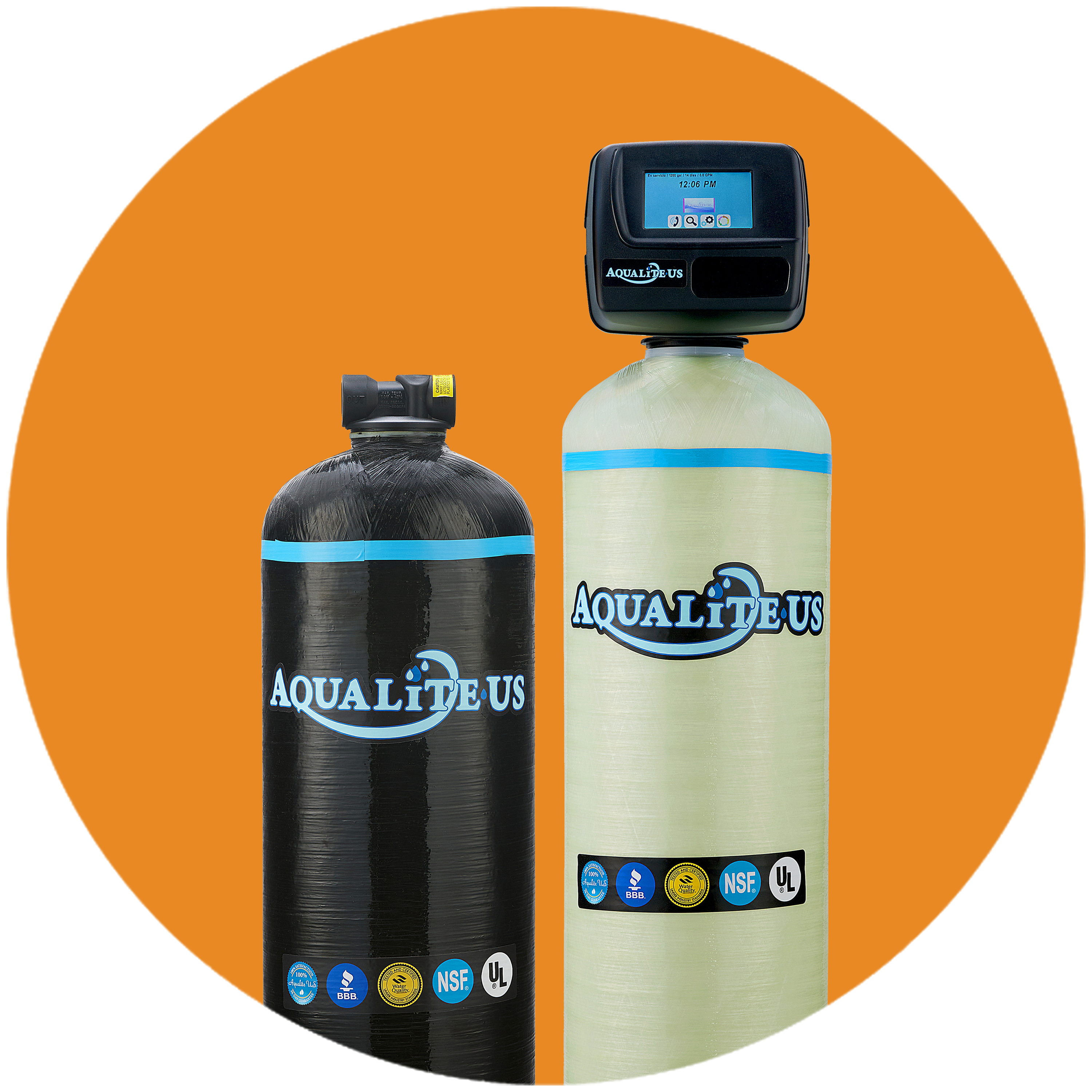Learn about the signs of hard water and what you can do to lessen its impact on your home and family.
If your soap does not lather well when you bathe, your clothes do not seem to get clean, or you find spots on dishes coming out of the dishwasher, it may be that you have what is known as “hard water.”
Rainwater is considered “soft” because it is generally pure and free of minerals. However, once absorbed into the ground, it can wind its way through soil and rock, such as limestone, and pick up minerals. High levels of these minerals, specifically calcium and magnesium, cause water to be “hard.”
Here is everything you need to know about hard water and what you can do to lessen its impact on your home and family.
Signs of Hard Water
When you have hard water, you need to use more soap or detergent to clean. It was coined because the lack of soap lather made it “hard” to wash anything.
If you experience any of the following, you may have hard water:
- A film on your hands after washing them.
- Mineral buildup around your faucets.
- Cloudy spots or film on glasses and silverware from the dishwasher.
- Clothes have stains, are stiff, or do not look clean after washing.
- Soap scum frequently needs to be scrubbed in your shower.
- Lower home water pressure.
- Appliances, such as washers, dishwashers, and coffee makers, do not work as well as they used to or use more energy to work.

The Cost of Hard Water
While hard water can taste bad or look cloudy, it does not generally cause any ill health effects. However, it can affect your appliances because a hard and scaly layer called limescale can build up in pipes, affect water pressure, and make appliances work harder.
Limescale can reduce the life of appliances, raise the costs of heating the water, lower the efficiency of electric water heaters, and clog pipes.
All of that can cost you money. For instance, a water heater lasts 8 to 10 years on average, but hard water can shorten its life to as few as 4 to 6 years, requiring replacement more often.
Hard water also requires you to buy more detergent, as you need to use more with hard water—twice as much —than soft water when washing clothes. For dishwashers, the detergent savings were as high as 70% when using soft water instead of hard.
One study found that depending on the soil; when water hardness was reduced, it was up to 12 times more effective at soil removal than increasing the amount of detergent used in your dishwasher.
Hard Water and Your Skin
If you or your family members have dry skin or hair, it may be due to hard water. When you use water containing calcium and magnesium on your skin, it can build up free radicals—or unstable atoms—that break down collagen, which helps retain skin elasticity. It is believed that free radical damage accounts for 80 percent of all skin aging.
In addition, when washing your face in hard water, your skin does not get properly clean, and a residue is left that can clog pores, lead to acne and make eczema and dermatitis worse.
You may also feel hard water’s effects on your hair. Your scalp may be dry and itchy and may appear dull. In addition, colored hair may fade faster, and blondes may see an orange or green tint.
Soft Water to the Rescue
Hard water problems can easily be solved by installing a water softener system. Aqualite installs both whole-home water softeners – with and without added salts – and under-sink reverse osmosis systems.
One type of system, such as the Puronics BrightClear, IronMax, and FA Series, reduces calcium and magnesium ions from the water and replaces them with sodium ions. These systems treat the whole house and are placed where the water enters the home.
However, the Puronics Clarius water systems do not require salt or additional treatment, providing a low-maintenance way to soften your water. Another type of water softener uses reverse osmosis (RO). These systems use a membrane under pressure to separate dissolved salts from the water.
The Puronics Reverse Osmosis under-sink system is an easy-to-use RO system that brings clean drinking water directly to your faucet. It has multiple filtration stages to reduce fine particles and common water contaminants.
When you use any of the above systems to soften your water, you will get:
- Cleaner clothes. Your clothes will come out of the washer without mineral stains. Also, hard water can shorten the life of textiles; soft water helps your clothes last longer.
- Better water pressure. Since there are no minerals such as calcium and magnesium, which can build up in pipes, water can flow freely.
- Energy savings. When minerals build up in your pipes, they force your water heater to work harder and consume more energy. Also, you can wash clothes in cold water instead of hot water and save on energy costs with soft water.
- Money savings. Since you need less soap to get a lather, you will save money on soap and detergent. Appliances will need to be replaced less often.
- More radiant skin. Your skin will be smoother and your hair silkier.
- Better-tasting water. One of the reasons people get a water softener is because their hard water has an off-taste. Better tasting water is better for drinking and food preparation.
Call Aqualite today for a free at-home water test. Once your water has been tested, our technician will go over the results and discuss the best solution to meet your family’s needs!



